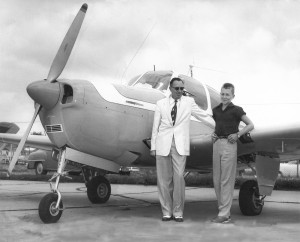By Richie Duchon
News21
Wednesday, September 29, 2010
Every year, planes crash in accidents that could have been avoided.
Ice can build up on the wings of a plane like it did in 1997 when a plane trying to land at the Detroit airport lost speed and crashed, killing all 29 on board.
The problem might be a poor repair job. That was the case in 2005 when the right wing fell off of a Chalk’s Ocean Airways flight just after takeoff from Miami. Two crew members and all 18 passengers died.
And then there are the times when a pilot is just too exhausted to fly and does so anyway. That is what investigators believe happened in 2004 when a Corporate Airlines plane crashed short of the runway in Kirksville, Mo.
The Federal Aviation Administration lists pilot error as the leading cause of plane accidents, but an analysis of accident data by News21, a national university student reporting project, and the Washington-based Center for Public Integrity, a nonprofit investigative journalism organization, shows that the major causes of air accidents include ice buildup on aircraft, risks on runways, faulty aircraft maintenance and overtired pilots.
For four decades, the National Transportation Safety Board has urged the FAA to take steps to reduce the likelihood of these kinds of accidents, issuing more than 520 recommendations.
But in many cases those recommendations have gone unmet, according to a review of accident data and government documents and interviews with dozens of industry and safety specialists.
Recommendations languish for many reasons: The process of changing rules is long and complex; industries resist expensive fixes; unions fight changes in work requirements; and sometimes years of research and product development are needed.
But many believe that the biggest cause of delay lies with the FAA itself.
Icing conditions
Tricia Coffman still breaks down in tears when she remembers the phone call telling her that her husband died in a plane crash in Pueblo, Colo., along with seven others in 2005.
“Losing him can’t be for nothing,” she thought. So she joined the National Air Disaster Alliance Foundation, a group that represents survivors and family members of aviation accidents.
Coffman learned that a similar accident had taken place 10 years earlier. When American Eagle Flight 4184 – in a holding pattern over Chicago O’Hare International Airport for 30 minutes – began its descent, the right wing made a dramatic dip, and the plane crashed in Roselawn, Ind., killing all 68 people on board. NTSB investigators said the crash was caused by the plane flying into freezing rain.



